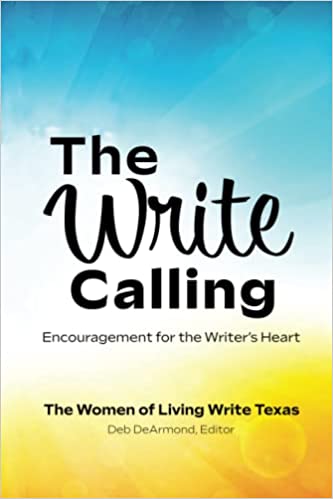
Do you know the feeling of arriving home after a party only to look in the mirror and discover you’ve had food on your face the whole night and nobody told you?
Everybody saw it, but you didn’t.
Writing can be like that. We often lack the perspective to see where our writing needs to be.
You can hire an editor and eventually you should. But if you’re still working to improve your craft, you’re not quite ready for an editor. Instead, you need a critique group.
I have been recommending critique groups for years. I hear the same excuses when I ask authors why they’re not in a critique group:
- There’s no critique group in my area.
- I live in the middle of nowhere.
- I live in the suburbs.
- I live in the city.
- All the critique groups are different.
The simple solution to all those problems is to start your own critique group.
How do you start your own critique group?
How do you start the kind of critique group other talented authors want to join?
I asked Sharon Tedford. She’s an international singer and songwriter, a multipublished author, and host of the award-winning God in the Ordinary Podcast.
She’s a member of the Living Wright Texas writers tribe that encourages writers to grow the Kingdom of God through their craft. The group recently released its first anthology, The Write Calling.

What are some benefits of being in a writers group?
Thomas Umstttd, Jr: What are some benefits of being part of a writers group?
Sharon Tedford: I am in a writers group because I thought my writing and punctuation were great. But I’m a Brit, and American punctuation is a little different. Since I live in Dallas, I needed to learn American punctuation.
When you get together with writers who love Jesus, who know more than you do, and who see things differently, you end up with some absolute gems and encouragement as well. When you feel your writing is good, one of your fellow writers might be able to see the food on your face and tell you it’s rubbish.
On the other hand, when you feel like giving up, your writer friends might say, “We can help you improve upon that, but your writing’s really good. I love this bit.” Being in a group of people with the same goal, who love Jesus, and who want to improve is a win for everybody.
Thomas: There’s an African proverb that says, “If you want to go fast, go alone. If you want to go far, go together.” The writing journey, especially the journey to commercial success and making a living, is a long journey. It doesn’t happen overnight. Commercial success often takes years or decades.
The journey is too long to go alone.
You need critiques as well as encouragement. And it’s fun to be around other authors.
A writers conference is an expensive way to experience a community of writers. When you talk about a film or book with other authors, you can use a more sophisticated vocabulary and talk in-depth about protagonists, antagonists, and motivations. It’s great fun to go to a writers group.
Sharon: When our group gets together, we spark ideas for each other because we have the same interests. We enjoy texting each other to share helpful articles or prayer requests. We love each other, and we are friends. That friendship has grown because we have the same goal in mind.
How did your writers group come together?
Sharon: My husband introduced me to his friend’s wife, who was also a writer. We started talking, and she persuaded me to attend a writers conference with her, which I did with much trepidation.
As a not-yet-published author, I listened to all the conference speakers and discussions. It was all wonderful and terrifying. We met many people, and it was fun to remember we were all there for the same reason.
At this conference, Deb DeArmand, one of our Living Write Texas founders, was chatting with two other proteges who were living in the Dallas Fort Worth area. They were all bemoaning the fact that there was no writers group here.
One of them finally said, “Why don’t we just start one? There’s three of us.”
They hosted the first meeting, and each of them invited a few other writers. I was invited to that meeting.
When people ask me how to start a writers group, I tell them to network. It’s such an ugly term, but you don’t have to network just get a business card. You can meet people to begin a relationship.
Now, when I go to a conference, I always write “Dallas Fort Worth” under my name on my name tag, so people can see where I’m from. When you’re visiting with someone at a conference, they might see where you’re from and discover they live three miles down the road. You might decide to meet in town to talk about writing.
Thomas: You only need two or three people to form a group. In fact, I recommend starting a writers group with a few people and then growing it from there. Starting with 40 writers who’ve never been in a group before will be unwieldy.
Sharon: We have eight to ten people and never more than ten. Membership in our group is by invitation only. If someone wants to join, we encourage them to start their own group, and we help them. A group of 40 is too big for this kind of group. It’s impossible to maintain close friendships with 40 people.
Thomas: There is a place for a group meeting of that size. For instance, you could host a meeting and invite presenters to speak to your group.
I’ve presented at those writers groups. There’s nothing wrong with that many people, but it doesn’t replace the smaller critique group. In a small group, you can actually read each other’s writing.
You can’t read 40 people’s manuscripts, but you might be able to read five and give feedback.
Sharon: We call ourselves a tribe because we’re more than a critique group.
We must be fully engaged with each other, and you can’t do that with 40 people.
How often do you meet, and what do you do in your meeting?
Sharon: We meet three times each year as a group; and for our fourth meeting, we attend a conference together. We typically share a room at the conference because it’s cheaper.
Every time we meet, we go away for a weekend. We meet on a Friday evening after work for those who still have a day job. We begin with worship on Friday night, meet all day Saturday, and then up until lunch on Sunday. Some of us have farther to drive and need to go to work the next day.
Between our in-person meetings, we have Zoom calls and text threads.
How often do you meet via Zoom?
Sharon: If we haven’t seen each other for a while, particularly during the summer, we’ll meet with a specific goal in mind.
A group member may have questions for the rest of us. Someone may want to read a passage and get feedback. Another person may have a tricky sentence they want help with. We also might kick around ideas for the next in-person meeting agenda or simply pray together.
Zoom calls are a great addition to our face-to-face meetings.
Three Ingredients for a Successful Writers Group
Thomas: Successful writers groups have three main ingredients. Every group has a combination of online meetings, in-person meetings, and asynchronous communication, like your texts. It’s asynchronous in the sense that you’re not live at the same time.
The in-person meeting is probably the most important because that’s where friendships are developed. In-person meetings give meaning and context to your text threads.
Some groups, like yours, meet infrequently; but when you get together, you take an entire weekend. Other groups meet more frequently and have shorter meetings. For example, a group might meet weekly on Thursdays at 7:00 for an hour.
Some groups will combine their quarterly meetings with a writers conference. If the conference starts on Thursday, the group members may arrive on a Tuesday and rent an Airbnb for a couple of days. Then they’ll all go to the conference together. They’re able to use their travel twice, which makes the flights effectively less expensive.
When you meet in person, what is your schedule for the weekend?
Thomas: When you meet on Friday, I imagine you have some chit-chat, but when do you pull out the books?
Worship
Sharon: We do love to chit-chat, but every single time we begin by worshiping together. I gradually get our group members to come into the lounge area. We sit in the living room and worship. I’m a worship leader, so I come with songs prepared; and we sing together. Worship has always been our first step.
It gives us a foundation for how to start. Worship reminds us who we’re writing for and who we’re living for.
Perhaps you’re not a worship leader, but you’d still like to begin your meeting with worship. You can go to YouTube and grab a few songs to start your session together. It’s a great way to focus your thoughts, ideas, and intentions on Christ.
We start by worshipping together with singing on Friday night, Saturday morning, and Sunday morning.
Communion
We’ll usually take communion together at some point to ensure we’re all in the same place, worshipping God first.
Prayer
After we sing, we pray and thank God for bringing us together. We thank him for the gift of creativity and what he will do. We pray in expectation for each other.
Sometimes people arrive after a terrible day at work or a difficult family situation. It’s hard to switch gears. We pray about those things and ask the Lord to look after them so we can focus on what he’s called us to for the weekend.
Writing Prompts
About three weeks before we go on our retreat, one of our members sends out ten writing prompts. We can choose one prompt and mustn’t write more than 350 words. We have three weeks to write 350 words.
It was incredible the first time we did that because we were effectively introduced to one another’s voices. As we read our writing prompts, suddenly, we could see, “You’re a mystery writer,” or “You are a poet, and I’m a songwriter.”
Some of those writing prompts have turned into articles or devotions that have been published.
We don’t merely read our 350 words. We also discuss them. We don’t critique, but we do say what we enjoyed about it.
- I loved the way you did this.
- That was really helpful.
- I’m going to learn from the way that you wrote that sentence.
We take turns creating the list of prompts and setting an agenda for the weekend.
The agenda usually includes something that will keep us focused and intentional.
For example, suppose at the previous retreat someone was wondering how to write educational articles for elementary schools. In that case, I would teach about that topic at the next retreat since I’m familiar with it. If no one knows about it, one person will volunteer to research it, and we’ll learn about it together.
At the next retreat, that topic will be on the agenda; and the person teaching will present using PowerPoint or Notes.
Lunch
Then we have lunch together.
Afternoon Session
In the afternoon, someone might say, “I’ve given you my chapter. Would you all read my chapter? Let’s have a mastermind on that. This character doesn’t seem to be developing enough for me. How do you see him?”
We can mastermind tricky chapters together. We all learn from that. Even if I don’t write characters, I can learn from someone who does.
That kind of teaching is powerful because we know and trust each other. It’s a great way to share our knowledge and expertise without having to pay for a conference where somebody will teach something similar.
Thomas: Spending time together in worship, prayer, chit-chat, and sharing meals builds trust so that when you get a critique, you know it comes from a place of love and not a place of envy.
Envy can kill a writers group. If one author has some success and other authors become envious, it poisons the group.
Sharon: Relationship is foundational. Our relationship with God is first, and our relationship with each other is second. It’s important to have honest and real relationships with God and the people in your group.
We’ve had sticky moments, difficult conversations, and disagreements; but because we love each other, we work through them. We’ll stand next to each other for eternity, so we should probably figure the disagreements out now.
Four Stages of Team Development
Thomas: In business school, we studied the team development process.
The four steps of team development are forming, storming, norming, and performing.
Forming
In the first phase, the group comes together. Everyone is on their best behavior. It’s the honeymoon phase.
Storming
During the second phase, group members often fight to figure out who is the alpha, who has the expertise, who plays which role, and where each member fits. There’s often conflict during this phase, especially in a professional context, because the stakes are high.
Conflict in your writers group will exist, but it probably won’t be as intense.
Norming
After the conflict, norms and expectations are formed. Each group member understands their role. Everyone knows who answers the phone and who fixes the website.
Performing
In the performing stage, everyone has a spot on the team. They know what they’re doing and can trust other team members to do their various jobs.
Your writers group will pass through these stages. If you have conflict in stage two, it’s not because you’re not good Christians. It’s because the group is developing.
Remember that the 12 disciples had so much conflict that Jesus nicknamed a couple of them the Sons of Thunder. There was some intense competition among them. They were competing over who was going to be the greatest. And Jesus told them, “Being the greatest isn’t a bad aim, but you’re going about it wrong. To be the greatest, you have to serve.”
Fun
Sharon: In the evening, we generally do something fun, like play a game together, do an icebreaker, or just share what’s on our hearts.
We always vow we’ll go to bed at a good time, and then we stay up for hours and hours talking.

Individual Bible Time
The next morning, we each have our own Bible time separately. It’s important that we each maintain our personal relationships with Jesus. After we reassemble, we start again with worship and do whatever’s next on the agenda.
Thomas: With a smaller group, you have more flexibility. Each meeting can be different. Each quarter the topics can be varied. The structure can adapt to the needs of the members that quarter.
If everyone is publishing an anthology together, the meeting will be different than if everyone is publishing their own book. After you publish the book, you’ll start over again by brainstorming your next book idea.
Sharon: We include brainstorming on the agenda. Members who have an idea for the agenda must submit it two or three weeks before the retreat so that we can get it in.
When we hand out the writing prompts three weeks before the retreat, we ask each member if they have anything to add to the agenda.
Thomas: The rule of thumb for mastermind meetings is that the more frequently you meet, the shorter your meetings can be. The less frequently you meet, the longer your meetings tend to be. There’s just so much to squeeze in.
Sharon: When we planned for our meeting, we created a broad-stroke outline in a Google Doc six weeks before the meeting. Each member would sign up to teach one session and cook one meal.
There are many ways to make your writers group work. If you can’t afford an Airbnb, you could host it at your home. If you don’t have time to cook, you could order pizza.
Make it as simple or complicated as you like. Remember that certain people in your group may have more cash than time or more time than cash. Each group will develop its own little culture.
What is the best group size?
Thomas: Groups work best when they have between three and 12 members. The group’s success will depend on each member’s commitment and availability. Each person you add to the group brings another level of expertise, perspective, and complexity.
Sharon: We’ve limited our group to ten because we sleep away and stay overnight. When you have more than ten people, the cost of the overnight facility is much greater. If you have too few people, the cost per person will be high. We’ve found that ten is a good number.
What advice do you have for someone who wants to start a writers group?
Pray
Sharon: First, pray about it. Our group fell into place because Deb, our fearless leader, prayed about it and the group organically formed.
Don’t Rush
Spend time connecting with people before committing to a group with them. You wouldn’t go away for a weekend with someone you’ve known for five minutes.
Consider the Importance of Faith
Ask each member about their faith journey.
Decide on Genre
Decide whether you want members who write in the same genre. Do you all need to be fiction writers?
Our group has writers of different genres, which works because our common goal is Jesus. You do need a shared goal. If your shared goal is Jesus, make sure that that’s a real shared goal you can be intentional about.
Invite-Only
Thomas: Another advantage of a small group is that it’s easier to make it invite-only. If you meet at the public library at 7:00 on Tuesdays, people will just walk in; and it will be a different kind of group dynamic. You won’t be as comfortable sharing your fears or vulnerabilities in a room full of strangers.
But you’ll feel safer in a small group where you’ve carefully invited people.
If your group’s goal is to critique each other’s writing, you’ll want to invite writers who are closely aligned with you. Be careful when getting critiques from writers of a different genre who write for a different audience.
For example, if you’re writing military science fiction and a romance writer gives you feedback, be careful about what you choose to implement. Your military science fiction can’t be too lovey-dovey. If it is, you’ll lose your audience.
Start Small
Don’t be afraid to start with three people. You don’t have to suddenly jump to ten; but if the Lord brings you ten, don’t be afraid of that either. If he’s gathering the group, he has a purpose for it and will provide for it. Everything will fall into place.
Pray and be brave.
Connect with Sharon at the following places:
- Facebook: Living Write Texas on Facebook
- Instagram: Living Write Texas on Instagram
- Book: The Write Calling: Encouragement for the Writer’s Heart (an anthology)
- Sharon’s Website: 61-Things.com
- Sharon’s Podcast: God in the Ordinary

Sponsor
This course takes you step-by-step through the whole process, from how to choose a meeting format to where to meet. We even cover how to deal with difficult situations.
The course doesn’t take long to complete, and many authors have used it to start a writers group. The advantage of starting your own writers group is that you can choose what kind of group you want to start.
If you feel lonely, stressed, or tired of writing, you may need a group of authors around you. So go ahead and start that group.
Related Episodes
- How to Start a Local Writers Group
- How to Find a Good Critique Group with Eva Marie Everson
- Why Mastermind Groups Give Bestselling Authors an Edge and How to Start One
- How to Work With Fellow Authors To Sell More Books
You can listen to this episode How to Start a Writers Group With Sharon Tedford on Christian Publishing Show.



